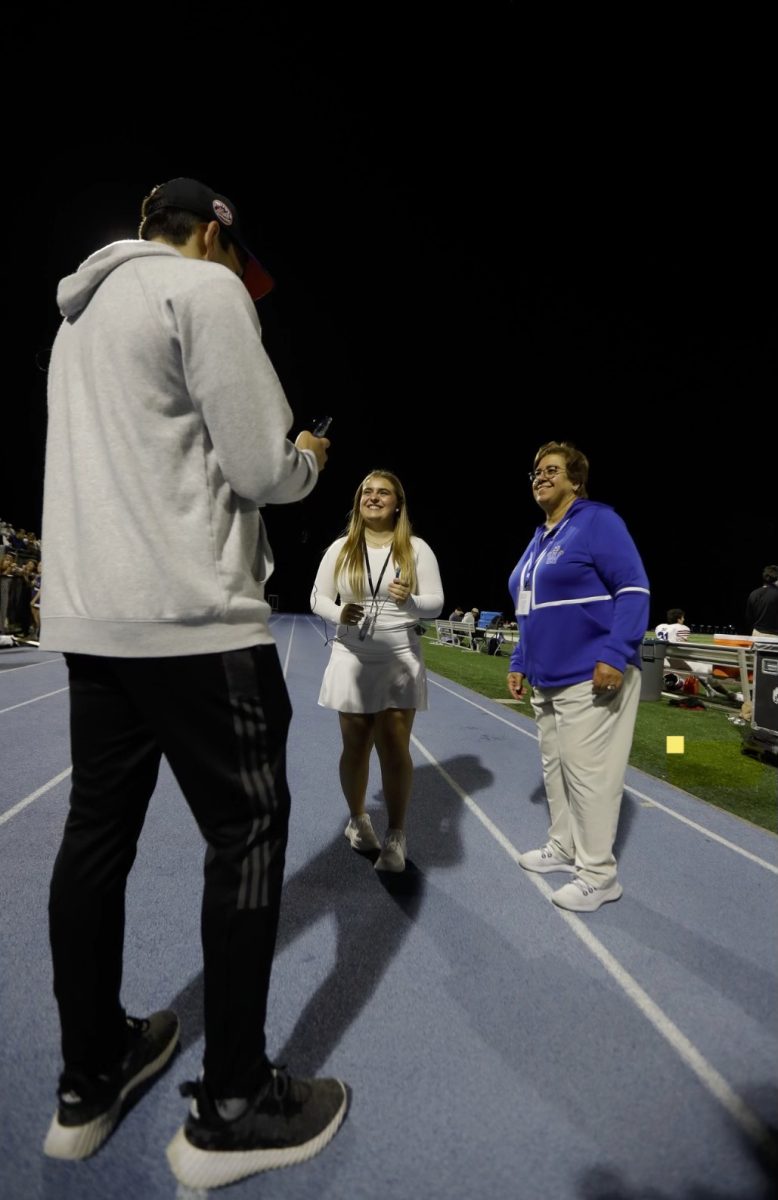In the past, sports were criticized for their lack of acceptance of women. The females who pursued a career in sports often faced discrimination and were deemed unqualified in the public eye. However, in recent years, women have increased their role and prominence in athletics. They have been able to adapt, find their way around stereotypes and establish themselves as key contributors, proving they can succeed in the male-dominated sports industry.
In honor of Women’s History Month, the acknowledgement of these females is important. Some of these women breaking barriers include Iowa basketball player Caitlin Clark, who has received extreme media attention for her groundbreaking skills and record-setting performances, the USWNT who have fought feverishly for equality, reporter Erin Andrews who can be seen on the sidelines of major football games and the many professional women’s ice hockey teams who have achieved great success, despite their franchises recently starting.
Examples of these influential women who have broken stereotypes, transcending into the male-dominated sports industry can also be seen throughout the halls of WHS. Athletic Director Sandra Mamary is one of the impactful women in sports at WHS. She oversees the athletic department, making sure everyone on each team has a fair opportunity to participate.
Mamary explained, “I felt like I could really impact a whole department. I touch every single team and have touched every sport, so I felt like I could really impact the greater good,” as the reasoning for going into the position she holds today.
Despite multitudes of success, when asked about setbacks or sexism she has faced, Mamary said, “I’ve proved that women can do this role and be extremely successful. It comes down to being a leader, and if you’re a leader, you can thrive in that position. It doesn’t matter what your gender is and that was why one of my biggest priorities was developing more girls programs. When I see programs I didn’t see five years ago that are thriving it shows that the sky’s the limit.”
The female athletes who play predominantly male sports here at WHS have had to fight for their place and make their presence known as well. Some of these programs include flag football, wrestling and ice hockey which have all recently been established.
Jolie Bruder, junior goalie for the WHS girls varsity ice hockey team, explained the upside of playing a male-dominated sport: “[It] makes me feel sophisticated in a way knowing that we are going against common stereotypes and making a change. Despite stereotypes being that only men can play hockey, it’s honestly so far from the truth as people like me are gaining more love for the sport every day.”
Echoing this opinion, junior flag football player Kate Fischer shared that “seeing other flag football teams who have already taken off and challenged stereotypes made me want to join Westfield’s team when it was announced. I thought I would learn a lot of lessons about leadership and bravery because facing adversity is never easy, but being a part of this team has helped females conquer what has been thrown at us.”
Senior wrestler Lina Wright added, “It felt really rewarding to do something that, for a long time, has been considered a male sport. Overall, the experience was valuable and I was able to prove to myself that I can do the things I put my mind to.”
Here at WHS, there are many female journalists and broadcasters working in the male-dominated sports field as well. WHS offers Hi’s Eye Sports, a sports journalism class with 15 students enrolled, 8 of them being female. Additionally, both sports reporters for BDTV are women.
Senior Hi’s Eye Sports Editor-in-Chief Adrian Fleming explained, “Most people that you see in the sports industry are males. They dominate the screen and they usually dominate the editor roles of sports publications because people think they know better than women. But more recently, I feel like there has been more female representation in this field and that’s incredibly inspiring.”
Despite the male-dominated sports industry being difficult to navigate for females in recent years, they have since been able to find their voices and break the barriers for future generations of women looking to make a career in athletics.

